Teeth and mouth trauma is an unexpected event, leaving many scrambling for information and immediate care. In the heart of Etobicoke, Thorncrest Dental stands as a beacon of relief and expertise, ready to navigate you through the unsettling waters of teeth and mouth injuries.
Whether you’re an adult who’s had an unfortunate encounter during a pick-up game of basketball, or a parent dealing with a child’s dental emergency post-playdate, this article aims to enlighten, educate, and ease your concerns.
Teeth injuries
The human mouth, a complex system of teeth, gums, and soft tissues, is surprisingly susceptible to injury. Teeth and mouth injuries can range from minor cuts within the cheeks to severe trauma affecting the teeth and jaw.
Often occurring during sports or vigorous activities, these injuries don’t discriminate, though children are notably more prone to encountering them.
Recognizing the types of injuries, alongside their symptoms and treatment options, is paramount in managing these situations effectively.

Types of Mouth Injuries
Mouth injuries can be categorized as minor or major, with each having its distinct causes and implications.
- Minor injuries, such as cuts or bruises from daily activities, are generally treatable at home.
- Major injuries—those affecting deeper tissues like the tonsils or soft palate—necessitate professional medical attention.
- Dental injuries, too, are a significant concern, with potential for teeth to crack, discolor, or even become dislodged, underscoring the need for prompt evaluation by a dental professional.

Teeth injuries should not be ignored. Call your dentist ASAP. Early treatment has better outcomes.
Symptoms of Mouth and Dental Injuries
Recognizing the symptoms of mouth and dental injuries is crucial. Symptoms can include bleeding, pain, lacerations, tooth damage, swelling, and more. The presence of loose tissue flaps or severe pain are indicators that professional care at a dental office in Etobicoke, like Thorncrest Dental, is required.
Treatment for Mouth and Dental Injuries
For minor injuries, home remedies can be effective. These include applying pressure to stop bleeding, using ice to reduce swelling, and rinsing with warm salt water to promote healing. Over-the-counter medications can alleviate pain, but it’s essential to use them as directed. For major injuries, professional evaluation is necessary to determine the need for stitches or other interventions.
Recommended Diet Post-Injury
A soft food diet post-injury helps in avoiding further trauma to the injured area. Dairy products, fluids, eggs, and tender meats are advisable, while citrus fruits, spicy foods, and smoking should be avoided to prevent irritation and support healing.
When to see your dentist?
Certain conditions necessitate a visit to a dentist in Etobicoke. These include severe pain, persistent bleeding, signs of infection, fever, and injuries caused by dirty objects or resulting in tooth displacement.
We emphasize the importance of seeking professional advice in these scenarios to prevent complications.
Prevention of Mouth and Dental Injuries
Preventive measures can significantly reduce the risk of dental trauma. Regular dental check-ups, wearing mouthguards during sports, and educating children on the risks of certain activities can safeguard against injuries.
Thorncrest Dental advocates for these practices, aiming to keep the community’s smiles healthy and intact.
Recovery and Aftercare
Recovery from dental trauma varies depending on the severity of the injury and the treatment undertaken.
Thorncrest Dental emphasizes the importance of following post-treatment instructions closely to ensure a smooth and speedy recovery.
Aftercare typically involves maintaining oral hygiene with gentle cleaning around the injured area, adhering to a soft food diet to prevent further injury, and avoiding strenuous activities that might impact the mouth or face.
Regular follow-up appointments are crucial to monitor healing and address any complications early.


Why Choose Thorncrest Dental for Your Dental injury Needs
Choosing the right dental office in Etobicoke for dental injury care is crucial. Thorncrest Dental offers a compassionate, professional, and experienced approach to dental emergencies. Here’s why Thorncrest Dental stands out:
- Expert Care: With a team of highly skilled dental professionals, Thorncrest Dental is equipped to handle a wide range of dental emergencies, ensuring you receive the best possible treatment.
- Modern Technology: Utilizing the latest dental technologies allows for accurate diagnosis and effective treatment, minimizing discomfort and speeding up recovery.
- Patient Comfort and Convenience: Understanding the stress associated with dental injuries, Thorncrest Dental prioritizes patient comfort and convenience, offering prompt appointments and a welcoming environment.
- Preventive Focus: Beyond immediate care, Thorncrest Dental is committed to educating patients on injury prevention, promoting long-term oral health and well-being.
In the face of dental trauma, time is of the essence. Whether it’s a minor injury or a major emergency, Thorncrest Dentist in Etobicoke is your trusted partner, ready to provide the care and support you need to get back to smiling confidently.
Frequently asked questions about dental injuries
Q: How soon should I see a dentist after a dental injury?
A: Immediately. Time is of the essence in dental trauma, especially if a tooth has been displaced or knocked out. Quick action can mean the difference between saving and losing a tooth.
Q: Can a tooth that’s been knocked out be saved?
A: Yes, in many cases. If the tooth is intact and quickly re-inserted into the socket, there’s a good chance it can be saved. It’s critical to handle the tooth by the crown (top part), avoid touching the root, gently rinse it without scrubbing, and seek immediate dental care.
Q: Are all sports-related mouth injuries preventable?
A: While not all injuries can be prevented, the risk can be significantly reduced. Wearing a mouthguard when participating in sports or recreational activities can protect against dental injuries.
Q: What should I do if my child injures their mouth?
A: Apply pressure to stop any bleeding with sterile gauze or a clean cloth, avoid giving them anything that could irritate the injury (like spicy foods), and contact your dentist in Etobicoke as soon as possible.

